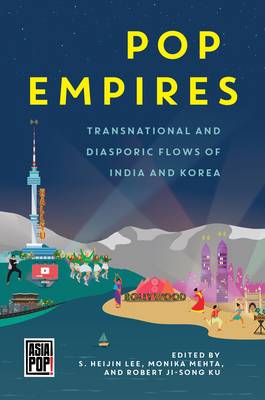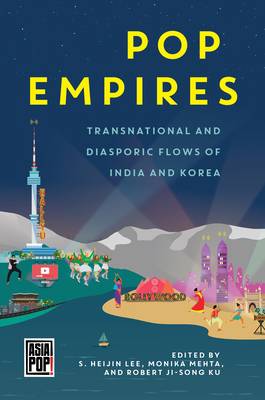
- Retrait gratuit dans votre magasin Club
- 7.000.000 titres dans notre catalogue
- Payer en toute sécurité
- Toujours un magasin près de chez vous
- Retrait gratuit dans votre magasin Club
- 7.000.000 titres dans notre catalogue
- Payer en toute sécurité
- Toujours un magasin près de chez vous
45,95 €
+ 91 points
Description
At the start of the twenty-first century challenges to the global hegemony of U.S. culture are more apparent than ever. Two of the contenders vying for the hearts, minds, bandwidths, and pocketbooks of the world's consumers of culture (principally, popular culture) are India and South Korea. "Bollywood" and "Hallyu" are increasingly competing with "Hollywood"--either replacing it or filling a void in places where it never held sway.
This critical multidisciplinary anthology places the mediascapes of India (the site of Bollywood), South Korea (fountainhead of Hallyu, aka the Korean Wave), and the United States (the site of Hollywood) in comparative dialogue to explore the transnational flows of technology, capital, and labor. It asks what sorts of political and economic shifts have occurred to make India and South Korea important alternative nodes of techno-cultural production, consumption, and contestation. By adopting comparative perspectives and mobile methodologies and linking popular culture to the industries that produce it as well as the industries it supports, Pop Empires connects films, music, television serials, stardom, and fandom to nation-building, diasporic identity formation, and transnational capital and labor. Additionally, via the juxtaposition of Bollywood and Hallyu, as not only synecdoches of national affiliation but also discursive case studies, the contributors examine how popular culture intersects with race, gender, and empire in relation to the global movement of peoples, goods, and ideas.Spécifications
Parties prenantes
- Editeur:
Contenu
- Nombre de pages :
- 360
- Langue:
- Anglais
- Collection :
Caractéristiques
- EAN:
- 9780824880002
- Date de parution :
- 31-07-19
- Format:
- Livre broché
- Format numérique:
- Trade paperback (VS)
- Dimensions :
- 147 mm x 229 mm
- Poids :
- 498 g






